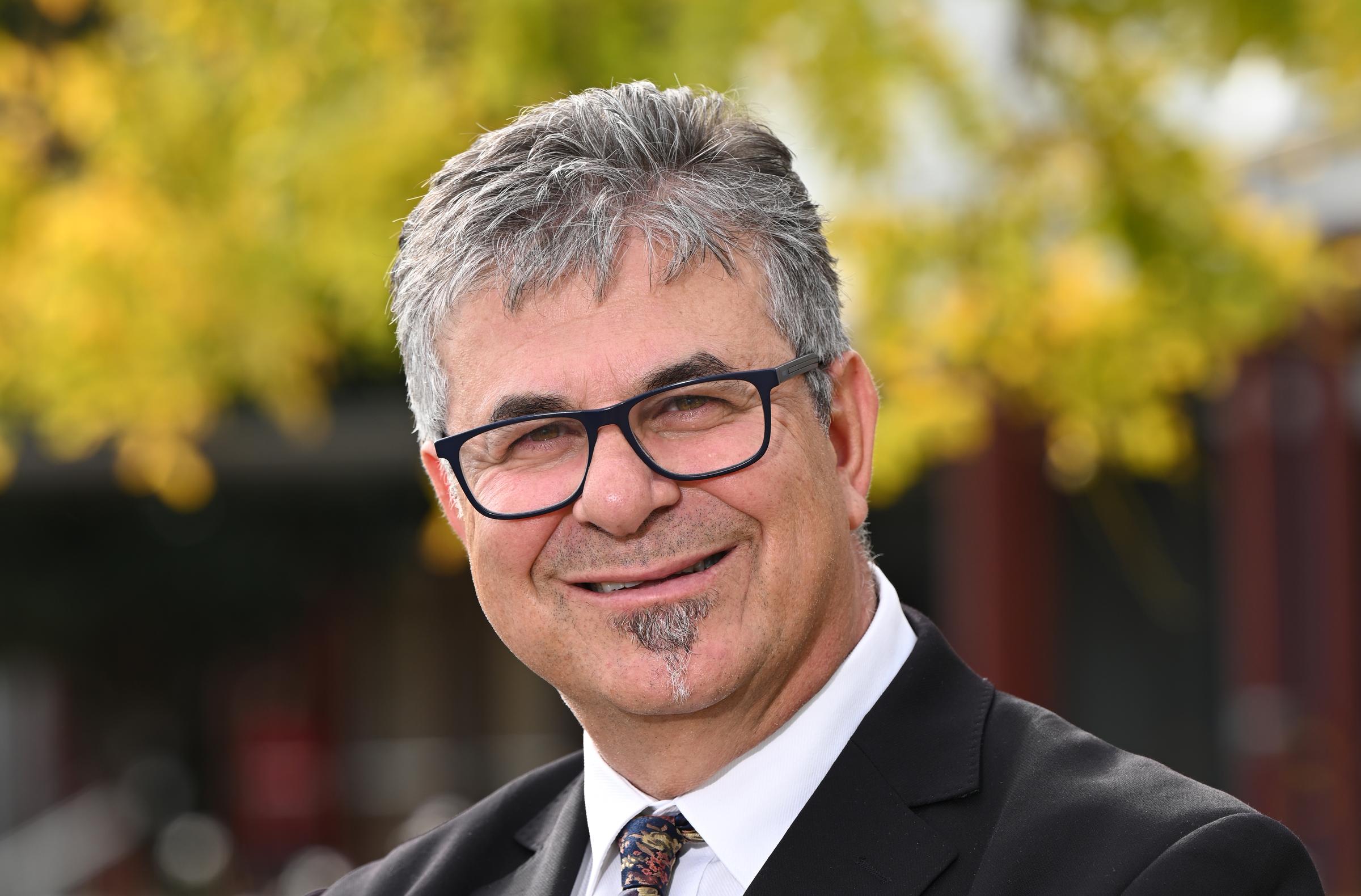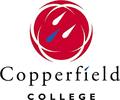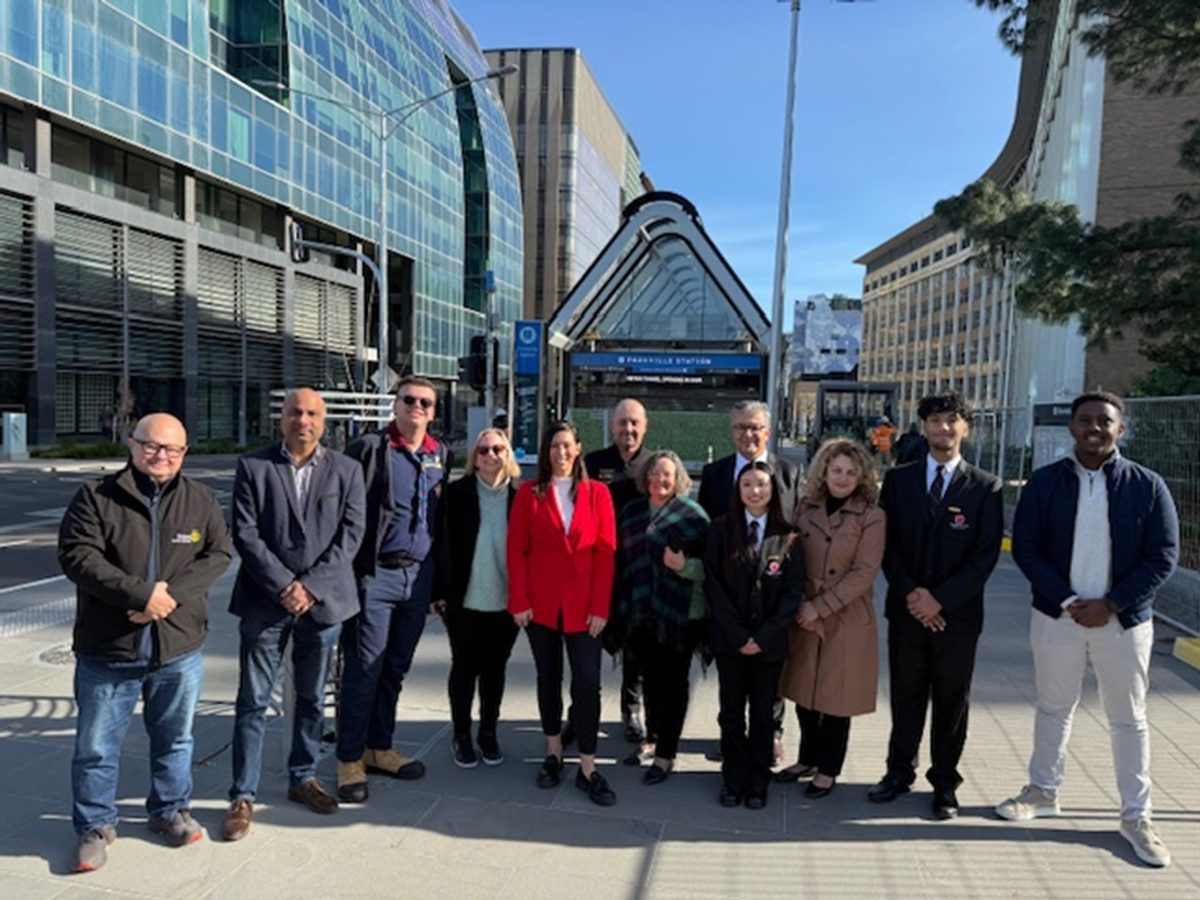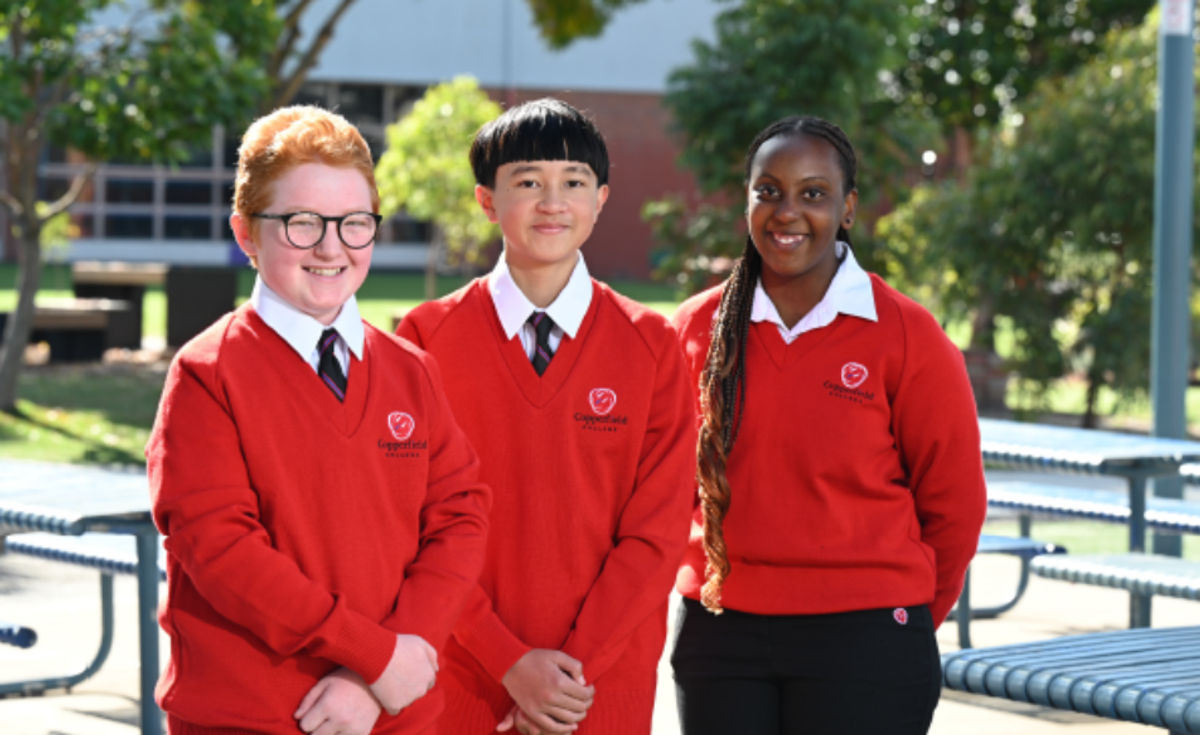College Principal Message

End of Term 2
I take this opportunity to celebrate with you and your families the achievements of our students and staff. None of this can occur without the hard work and effort of the Copperfield College staff (teaching and non-teaching) who work persistently, plan and organise the learning & teaching that takes place daily within our vibrant college community. A myriad of extra-curricular activities were undertaken by our students across the College; Year 7 camp, Year 10 camp, several outdoor education camps, many sporting events including our Excellence in Sports Program (Basketball, boys’ and girls’ teams) competing at a state level, excursions, incursions, our semester one music concert at Bowery Theatre, Semester Exams, Be Bold Be Heard (BBBH) Community of Practice for our female students, just to name a few.
Our students have shown remarkable academic prowess across various disciplines. They have achieved great curriculum results, and added value to their learning. Our preliminary NAPLAN Literacy and Numeracy programs have witnessed great results, with an increase in the number of students earning top results. Our students had many opportunities to demonstrate our school values Collaboration, Inclusiveness and Growth within the school and the wider community.
As I reflect through this semester, I cannot help being extremely proud of the personal qualities and achievements of our students. Congratulations to all students for their achievements and thank you to all staff for their contributions to the success of this term and the whole semester.
During this term we also had visits from our local politicians; The Honourable Natalie Hutchins – Member for Sydenham and Ms Luba Grigorovitch MP – Member for Kororoit. Both Natalie and Luba had the opportunity to meet with our students respectively from Sydenham and KP campuses and discussed contemporary Copperfield College and general state education topics.
A highlight of these visits was when Luba asked our students to raise any concerns about the young people and state education and what they would like to see included in the upcoming state budget. Our students raised the issue of free public transport for all students. Luba took that to the government and by using our students’ voice, to strengthen her arguments, she successfully managed to convince the government to introduce the “Free Public Transport For Every Child, Every Day, Everywhere” legislation. Therefore, I am let to believe that this legislation is now called the ‘Copperfield students free public transport legislation”. Luba also initiated a video clip featuring our our students talking about this legislation and how will support families with school age children, in particular CALD and low- socioeconomic families.
Meanwhile, the College was lucky enough, to be invited by the Minister for Public Transport, The Honourable Gabrielle Williams to an exclusive behind-the-scenes tour of Parkville Station on Friday June 20. Our school Captains Sophia Cruz and Uday Ahuja, together with Ms Dedes and I, participated in this wonderful opportunity. This visit offered us a unique opportunity to experience firsthand the remarkable progress of one of Melbourne’s most significant transport infrastructure projects.
This visit was an intimate tour with Ms. Luba Grigorovitch, State MP, to accompany a small group of local community leaders; to help celebrate and share the benefits this project will bring to the western suburbs. Our school captains Sophia and Uday, in an interview with
Luba stated that this project will support students from the western suburbs to access The University of Melbourne and the City of Melbourne, easier and safer.
Maintaining a positive and inclusive college environment is essential to our success. We continue to prioritize the well-being of our students and provide resources for mental health support. Our commitment to fostering a safe and respectful atmosphere remains unwavering, and we encourage everyone to actively participate in creating a supportive community on all three sites.
School and self-pride are central to everything we do here at Copperfield. We bring together a collaborative multi-campus community of practice, committed to providing students with the tools they need not only to deal with life’s difficulties, but also to teach them the skills required to lead a flourishing life. Our staff and students are proud to be part of the school community, and they are also very proud to representing our community and its values to the wider community.
At a recent school assembly, I spoke about excellence, and how strong instructional leadership and wellbeing support drive excellence for all students to reach their full potential. To build a better school is hard work, and requires great leadership, with the foresight to turn ideas into actions. This enables a culture of excellence to flourish in the school, in every classroom and across the system as part of the Education State goal of excellence. All our students deserve to reach their best, and this includes ensuring our high ability and gifted students are stretched, engaged, and challenged. As Principal of this great school community, I can assure you that Copperfield is a School of Excellence and everything we do is about the improvement of our young people ensuring successful future pathways.
In conclusion, I am immensely proud of our students’ achievements and the dedication of our staff. Together, we have demonstrated excellence in academics, extracurricular activities, community involvement, and college and career preparedness. I look forward to the upcoming semester and witnessing the continued growth and success of our high school community.
Wishing you all a restful break with your families and friends and if taking time away for the term vacation, that you keep safe and enjoy your time off.
2026 and Beyond NEW COPPERFIELD COLLEGE SCHOLARSHIP PROGRAM
Empowering every student to aspire and achieve!
2-YEAR SCHOLARSHIPS valued at $4500 ARE AVAILABLE TO 2025 YR 7 STUDENTS
Copperfield College is excited to announce the continuation and strengthening of our two-year scholarship program for prospective year 7 Students in 2026, in the following areas:
Academic Excellence
Student Leadership
Community (Good Citizenship)
Sporting Excellence
The Arts
The due date for our scholarship applications is on August 29, 2025. Late applications will not be considered beyond this point.
There is one scholarship available in each category at each junior campus:
(Kings Park and Sydenham campuses)
The Scholarship program promotes and recognises outstanding commitment by primary school students who have displayed a strong involvement in their school community. The College looks for exemplary young people who are exceptional in different areas and possess personal qualities and values that will contribute to the life of Copperfield College.
Copperfield College Scholarship Program recognises the considerable achievements of children in our community and provides them with the opportunity to experience exciting curriculum opportunities through a broad range of engaging programs delivered by our dedicated teachers.
Scholarships are awarded for two years commencing in Year 7 and then reviewed going into year 8. Scholarship recipients will be Grade 6 students who will be attending Copperfield College in Year 7 the following year.
The Scholarship is valued at approximately $4500 and includes the following for both Year 7 & 8:
- Full value of school fees
- Full set of Copperfield College uniform
- Laptop
- Books
- All Camps
- Excursions
Academic Excellence Scholarships are available to students with an exemplary academic record who have demonstrated outstanding application and achievement in one or more of English, Mathematics or Science, together with a strong performance in general studies.
Student Leadership Scholarships are available to students who have demonstrated leadership skills. The successful applicant(s) will have excellent communication skills, display initiative, and have a passion to motivate, delegate, guide and direct fellow students.
Community (Good Citizenship) Scholarships are available to students who have made a significant demonstrable contribution to their community. The successful applicant(s) will display a strong social conscience as well as an outstanding work ethic and behaviour.
Sporting Excellence Scholarships are available to keen sports persons who have shown outstanding aptitude and personal achievement in one or many sporting field(s).
The Arts Scholarships are available to students who have displayed excellence and shown commitment in one or more of the Arts (such as; Drama, Music, Dance, Visual Arts). Successful applicants should have a record of involvement in all aspects of primary school life in addition to artistic talent.
Additional Criteria: Applicants for all scholarship categories must also demonstrate a
strong work ethic at primary level, have been supportive of fellow students and have fully participated in the life of their school. Please return Scholarship Application Form to campus general office.
For more information contact Mr Renato Carinci – Kings Park Campus Principal on 9365 4111 email: renato.carinci@education.vic.gov.au or Mr Michael Gruis -Delahey Campus Principal on 93075555, email Michael.Gruis@education.vic.gov.au
Or Mr Benjamin Kuypers – Kings Park Campus Transitions Leader email: Benjamin.Kuypers@education.vic.gov.au, or Mr Daniel Venuto - Kings Park Campus Transitions Leader email: Daniel.Venuto@education.vic.gov.au on 9365 4111
Or Mr Will Buttigieg - Sydenham Campus Transitions Leader email: will.buttigieg@education.vic.gov.au on 93613888
Or visit our website www.copperfieldcollege.vic.gov.au
*Application forms can be downloaded on our website.
Please scan QR Code to get an application
Semester One Exams
Semester One exams for all Year 9 to 12 students have taken place in Weeks 7, 8 and 9 (6 to 19 June). Congratulations to all students who have completed all their semester one exams. Students and families will be receiving their semester reports in due course.
Copperfield College has implemented semester exams for several years now and semester examinations are well embedded in our school calendar and culture. The formal examination structure creates an opportunity to provide students with skills in examination preparation, practice, and personal experience in the valuable life skill of undertaking formal testing. Regular opportunities must be provided through both formative and summative assessment for students to develop examination techniques and to receive feedback on their performance.
Our school community prides on our structure examinations, ensuring that;
- students develop confidence and skill in exam techniques and settings
- give students experience in formal testing situations that may be useful in later life
- instil a home/school study culture of regular revision and test preparation
- develop subject specific exam skills
- reinforce the learning and teaching culture of the school amongst the students, parents and wider community
- provide an additional assessment tool for teachers and students
Some ways parents/carers can encourage and support their young person’s mental health
1. Encourage them to stay connected
Social relationships are important to your young person’s general wellbeing. It is okay if they take time out for themselves at times but encourage them to keep in contact with friends.
Friends can provide both play and support, and spending time with friends is also important for keeping and building on existing friendships. During restrictions, young people can remain connected via phone call, email, text message Facebook message, Zoom meetings or HouseParty app.
2. Encourage them to stay involved
Encourage involvement with volunteer work, hobbies, clubs or committees, or sports – these can help young people feel connected to their wider community. Participate with them when you can. Involve them in decisions and give them responsibility at home (eg making decisions about dinner and helping to prepare dinner). Help them to identify and set realistic goals. Setting and achieving realistic goals can be incredibly motivating and can help build self-confidence.
3. Encourage physical activity
Physical activity is important for everyone’s health and wellbeing. If your young person is feeling down or finding things are difficult, physical activity may be the last thing they feel like doing. But even small activities, like playing chess or walking around the block, can help relieve stress and frustration, provide a good distraction from worrying thoughts, improve concentration and improve mood. If your young person is struggling to get active, find a physical activity that you both enjoy and can do together and plan to do it regularly.
4. Encourage a regular routine
Getting a good night’s sleep helps young people to feel energised, focused and motivated. Adolescence is a time when a number of changes to the “body clock” impact on sleeping patterns and young people are more likely to have problems with sleep. Developing a sleeping routine can help. Encourage your young person to headspace wake up around the same time each day, get out of bed when they wake up, and go to bed around the same time each night. Avoiding caffeine after lunchtime, having a quiet, dark and uncluttered bedroom and shutting down electronic devices before bed can also help them to get a good night’s sleep.
5. Encourage healthy eating habits
Eating well doesn’t only reduce the risk of physical health problems, like heart disease and diabetes, but it can also help with sleeping patterns, energy levels, mood, and general health and wellbeing. A good balanced diet with less junk food/ lots of sugars and more vegies, fruit, whole grains and plenty of water will ensure your young person has all of the vitamins and minerals to help their body and brain function well.
Devoting time to just having fun can help to recharge your young person’s battery, revitalise their social networks and reduce stress and anxiety.
HOW HARMFUL IS SOCIAL MEDIA TO MENTAL HEALTH?
The impact of social media on mental health is a complex and ongoing topic of research. While social media platforms have many benefits, there are concerns about potential negative effects on mental well-being. At Copperfield College we encourage the appropriate use of social media and through Student Voice we our students
Here are some ways in which social media can potentially impact mental health:
Social comparison: social media often presents a distorted version of reality, where people tend to share the highlights of their lives. This can lead to social comparison, where individuals compare themselves unfavourably to others, leading to feelings of inadequacy, low self-esteem, and depression.
Cyberbullying: Social media platforms can provide a space for cyberbullying, harassment, and negative interactions. Experiencing bullying or witnessing it can have detrimental effects on mental health, causing stress, anxiety, and even leading to depression.
Fear of missing out (FOMO): social media can create a fear of missing out on experiences and events others are participating in. Constant exposure to others' exciting activities or achievements can induce feelings of loneliness, anxiety, and a sense of being left out.
Online harassment and trolling: Users may face online harassment or trolling, which can cause significant psychological distress. Negative comments, personal attacks, and online conflicts can impact self-esteem, mood, and overall mental well-being.
Unrealistic body image ideals: social media often perpetuates idealised and unrealistic body image standards. Constant exposure to such images can contribute to body dissatisfaction, eating disorders, and poor self-image, particularly among vulnerable individuals.
- Sleep disturbances: Excessive use of social media, especially before bedtime, can disrupt sleep patterns. Poor sleep quality and quantity can have negative consequences for mental health, including increased stress, mood disorders, and decreased cognitive function.
It is important to note that the impact of social media on mental health can vary for different individuals. Some people may be more susceptible to its negative effects, while others may navigate social media without significant harm. It's crucial to use social media mindfully, maintain a healthy balance, and seek support if you experience any negative effects on your mental well-being.
Child Safe Standards: Creating a safe environment
Copperfield College is a child safe school/organisation that aims to comply with Ministerial Order No. 870 - Child Safe Standards, which came into effect 1 August 2016.
The school is committed to the safety and wellbeing of all children and young people, and this is the primary focus of our care and decision-making. We have a zero tolerance for child abuse.
The College is committed to providing a child safe environment where children and young people are safe and feel safe, and their voices are heard about decisions that affect their lives. Particular attention is paid to the cultural safety of Aboriginal children and children from culturally and/or linguistically diverse backgrounds, as well as the safety of children with a disability.
The College staff members have a responsibility to understand the important and specific role he/she plays individually and collectively to ensure that the wellbeing and safety of all children and young people is at the forefront of all they do and every decision they make.
In addition, the school has a Wellbeing Centre/Hub with a number of full-time staff members working with the students ensuring they are building resilience skills and having their wellbeing needs addressed. Together with the Doctors in Schools program the school wellbeing team works with a number of external agencies such as The Geelong Project and other organisations utilizing their expertise to improving our students’ wellbeing, ensuring they feel safe and bale to be productive in a caring learning and teaching environment.
Child Safety, Code of Conduct
Copperfield College is committed to the safety and wellbeing of children and young people. Our school community recognises the importance of, and a responsibility for, ensuring our school is a safe, supportive and enriching environment which respects and fosters the dignity and self-esteem of children and young people, and enables them to thrive in their learning and development.
This Code of Conduct aims to protect children and reduce any opportunities for child abuse or harm to occur. It also assists in understanding how to avoid or better manage risky behaviours and situations. It is intended to complement child protection legislation, Department policy, school policies and procedures and professional standards, codes or ethics as these apply to staff and other personnel.
The Copperfield College Principal and the Leadership Team fully support the implementation and monitoring of the Code of Conduct, and plan, implement and monitor arrangements to provide inclusive, safe and orderly schools and other learning environments. The Principal and the Leadership Team also provide information and support to enable the Code of Conduct to operate effectively.
All staff, contractors, volunteers and any other members of the school community involved in child-related work are required to comply with the Code of Conduct by observing expectations for appropriate behaviour below. The Code of Conduct applies in all school situations, including school camps and in the use of digital technology and social media.
Acceptable behaviours
As staff, volunteers, contractors, and any other members of the school community involved in child-related work individually, we are responsible for supporting and promoting the safety of children by:
- upholding the school’s statement of commitment to child safety at all times
- treating students and families in the school community with respect both within the school environment and outside the school environment as part of normal social and community activities.
- listening and responding to the views and concerns of students, particularly if they are telling you that they or another child has been abused or that they are worried about their safety/the safety of another child
- promoting the cultural safety, participation, and empowerment of Aboriginal and Torres Strait Islander students
- promoting the cultural safety, participation, and empowerment of students with culturally and/or linguistically diverse backgrounds
- promoting the safety, participation, and empowerment of students with a disability
- reporting any allegations of child abuse or other child safety concerns to the school’s leadership team
- understanding and complying with all reporting or disclosure obligations (including mandatory reporting) as they relate to protecting children from harm or abuse.
- if child abuse is suspected, ensuring as quickly as possible that the student(s) are safe and protected from harm.
Unacceptable behaviours
As staff, volunteers, contractors, and any other member of the school community involved in child-related work we must not:
- ignore or disregard any concerns, suspicions or disclosures of child abuse
- develop a relationship with any student that could be seen as favouritism or amount to ‘grooming’ behaviour (for example, offering gifts)
- exhibit behaviours or engage in activities with students which may be interpreted as abusive and not justified by the educational, therapeutic, or service delivery context
- ignore behaviours by other adults towards students when they appear to be overly familiar or inappropriate.
- discuss content of an intimate nature or use sexual innuendo with students, except where it occurs relevantly in the context of parental guidance, delivering the education curriculum or a therapeutic setting.
- treat a child unfavourably because of their disability, age, gender, race, culture, vulnerability, sexuality or ethnicity.
- communicate directly with a student through personal or private contact channels (including by social media, email, instant messaging, texting etc) except where that communication is reasonable in all the circumstances, related to schoolwork or extra-curricular activities or where there is a safety concern or other urgent matter.
- photograph or video a child in a school environment except in accordance with school policy or where required for duty of care purposes.
- in the school environment or at other school events where students are present, consume alcohol contrary to school policy or take illicit drugs under.
Nick Adamou
College Principal






